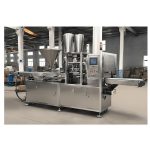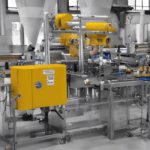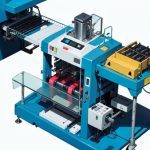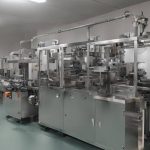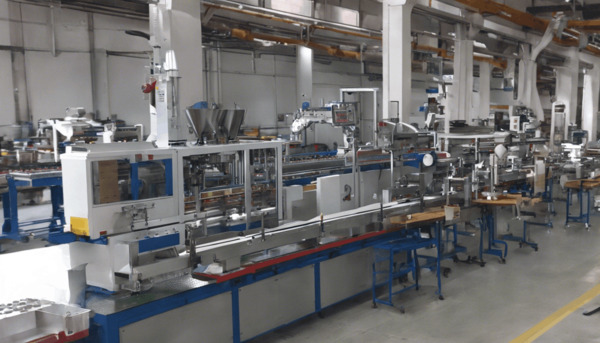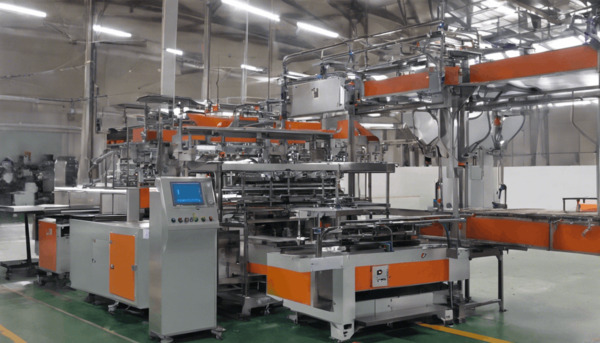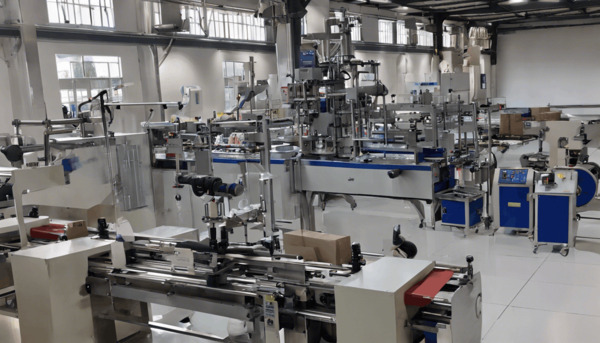
Understanding Case Erectors
A case erector is a type of packaging machinery used to form flat cardboard blanks into boxes or cases, which are then ready to be filled with products. These machines are crucial in industries where packaging is a significant part of the production process, such as food and beverage, pharmaceuticals, electronics, and more. The efficiency of a case erector can significantly impact the overall productivity of a packaging line.
Type of Case Erector
There are various types of case erectors, each with different speed capabilities. The most common types include semi-automatic and fully automatic case erectors. Semi-automatic case erectors require some manual intervention, such as loading the case blanks, which can limit their speed. Fully automatic case erectors, on the other hand, are designed to operate with minimal human intervention, allowing for higher speeds and greater efficiency.
Complexity of Case Design
The design of the case being erected can also affect the speed of the machine. Simple, regular-shaped cases are easier and faster to erect than complex, irregular-shaped cases. Machines may need to be adjusted or slowed down to handle more intricate designs, which can impact overall speed.
Material of the Case
The material from which the case is made can also influence the speed of a case erector. Thicker or more rigid materials may require more time to fold and secure, while thinner materials might be processed more quickly. However, very thin materials can also pose challenges, as they might require more precise handling to avoid damage.
Operational Environment
The environment in which the case erector operates can have a significant impact on its speed. Factors such as temperature, humidity, and cleanliness can affect the performance of the machinery. For instance, high humidity might cause cardboard to become softer, which can slow down the erection process. Ensuring that the operational environment is optimal can help maintain high speeds.
Typical Speed Ranges for Case Erectors
The speed of case erectors is typically measured in cases per minute (CPM). Depending on the type and model, speeds can range from a few cases per minute to several dozen. Semi-automatic case erectors might operate at speeds of 5-15 CPM, while fully automatic models can reach speeds of 20-30 CPM or more. High-speed models, designed for large-scale operations, can exceed 50 CPM.
Advancements in Case Erector Technology
Recent advancements in technology have led to improvements in the speed and efficiency of case erectors. Innovations such as servo-driven systems, advanced sensors, and improved control software have enhanced the precision and speed of these machines. Additionally, the integration of IoT (Internet of Things) technology allows for real-time monitoring and adjustments, further optimizing performance.
Balancing Speed with Other Considerations
While speed is an important factor in selecting a case erector, it is not the only consideration. Other factors such as reliability, ease of maintenance, flexibility, and cost should also be taken into account. A machine that operates at high speed but frequently breaks down or requires extensive maintenance may not be the best choice. Therefore, it is essential to balance speed with other operational needs to ensure overall efficiency and cost-effectiveness.
Conclusion
The speed of a case erector is influenced by a variety of factors, including the type of machine, case design, material, and operational environment. While advancements in technology have led to faster and more efficient machines, it is crucial to consider other factors such as reliability and cost when selecting a case erector. By understanding these elements, businesses can choose the right equipment to enhance their packaging operations and improve overall productivity.
